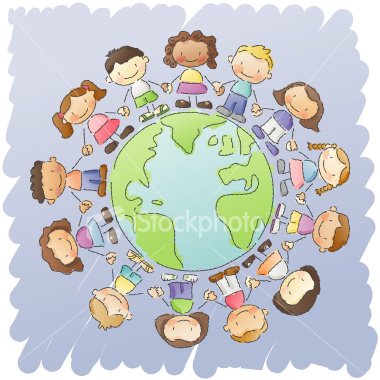From the me to the “we”.
Practicing communal gratitude does not seem like an easy road – first off you can’t make it compulsory. Forcing gratitude, especially when required by those in positions of power, is just another abuse of power and surely would only foster resentment.
Communities could however, design their own gratitude covenants whereby participants freely consent to mutual expressions and practices of appreciation. What if organizations, institutions and communities came together in circles of thanks? Not just as a one-day holiday of celebration, but in the form of stated public commitments to the sharing of gifts for the highest and best good of all?
Many years ago, as a young professional, I began my career with IBM. I often referred to them as good parents – because they so overtly taught integrity, service and yes, appreciation. It was considered very important to write notes of thanks to customers, to fellow colleagues and most importantly from management to employees – to build character and relationship. As you moved towards opportunities to be promoted – those letters in your file – were part of your consideration for advanced opportunities.
It seems we also need a new political language. Much of our current language echoes debt-and-duty gratitude. A kind of heaviness of obligation and yes the dreaded quid pro quo. I have even noticed this in friendships- keeping a scorecard of invitations to dinner or who gave the most gifts or the most expensive gifts. We need to move to gift and response in language and in action. We need to recognize that all of our lives are profoundly dependent upon the goods and services that others created and, in some way, shared. We ALL receive and we ALL give. No one is only a “taker” or a “maker”.
Moving from quid pro quo to pro bono could help us start to reimagine our politics as being about stewardship, abundance and care, and the natural practice of gratitude would ensue.
I don’t know about you, but I would love to hear civic leaders and businesspeople and teachers and clergy speaking about a future where gift and response gratitude frames our public life.
As we work on our private “me’’ practice of gratitude we need to include emotions and ethics- to create more of a round table where Me, We, feelings, and actions create a circle of thanks.
Practicing gratitude calls us to better lives and a better world. A century ago, Albert Schweitzer, theologian and Nobel Prize winner remarked:
The greatest thing is to give thanks for everything. He who has learned this knows what it means to live. He has penetrated the whole mystery of life: giving thanks for everything.”
Every day there are reasons not to feel grateful and not to practice gratitude. Terrible, distressing and painful things. The emotions of thanks elude us, and it is easy to choose ingratitude. This week of turmoil in the news, and of grave illness in my own family, has made me question the Bible verse that Schweitzer alluded to …but it actually says “IN everything give thanks- not for illness, or loss, or violence but rather “in, with, within, throughout”. It is a disposition, an awareness, a set of habits. And ultimately it is a place -perhaps the place where we find out truest and best selves.
I invite you to the journey from ingratitude to gratefulness and to find yourself part of a like-spirited community. You are not alone. There are many on the road.
Give thanks
Live in gratitude
There is a place for you at the table.
The Spiritual Intelligence retreat will cover some aspects of gratitude- SAVE THE DATE to join us on February 22&23 in North Lake Tahoe!!

